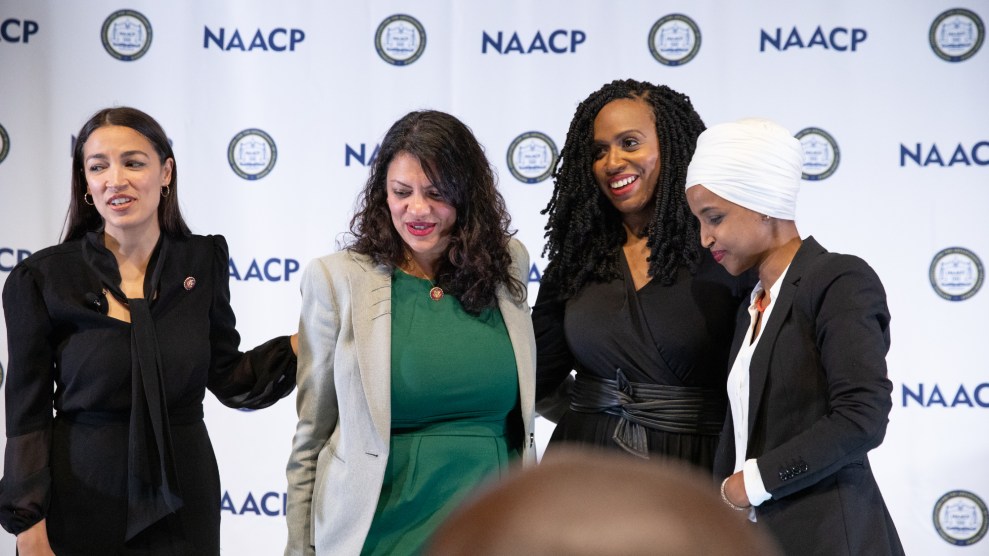It may not sound like it, but being a corporation documents examiner for the California secretary of state’s office can be fun. As a CDE, you’re on the front lines of the state’s war on corporate bad taste, with de facto authority to reject any corporation name you deem offensive or inappropriate.
Lawyers for San Francisco-based Bitch magazine, an up-and-coming feminist publication (to which this reporter has contributed) learned this the hard way after its application to incorporate under the name Bitch Publications was rejected recently.
Editor and publisher Lisa Miya-Jervis says, “When women are called bitches in the insulting sense, it’s generally because they are outspoken and don’t take any shit. If speaking my mind makes me a bitch, I’m proud of that. Plus, from a purely mercenary marketing perspective, people are more likely to pick up the magazine if it’s called Bitch than if it was called Women’s Media Critic.”
Attorneys for Bitch have applied for a trademark for the magazine’s name, since federal law allows such words on the grounds that, though perhaps offensive, they are not obscene.
But corporate-name watchdogs are stricter than either the trademark folks or the registrars on the information super-smutway, where since 1996 the only obscenities not allowed in domain names are comedian George Carlin‘s notorious Seven Dirty Words.
According to Connie Christensen, one of 14 CDEs employed by the state’s corporations division, examiners follow no written policy regarding sketchy names. “It’s just kind of everybody’s opinion, just what somebody would consider offensive,” she says. “It’s partly for the people who work here; it’s not pleasant to have to deal with these [distasteful] requests.”
Asked for examples, Christensen politely spells out the offending words. “We had a request for b-i-t-c-h one time, first word ‘ice,'” she says. “That wasn’t acceptable.”
And others?
“There was the opposite of b-i-t-c-h for a guy.”
And how might one spell that?
“B-a-s-t-a-r-d,” replies the examiner. “See? This isn’t pleasant for me.”
The lack of a clear policy raises questions of when, and by whom, such a line should be drawn. That a state would allow some such names and not others raises questions of fairness and free speech says Miya-Jervis, who plans to fight the ban on Bitch.
Consider some examples: Florida gave the go-ahead to Pussy Pillows Inc., which probably makes cat cushions; that state is also home to Bitchy Kitty Software, Arse Corp., and Balls of Steel Inc. (a bearing manufacturer, perhaps?). Chances are that Big Dick Oil and Gas Company of Kansas was founded by a fellow named Richard; Arkansas boasts the Australasian Order of Old Bastards Inc.
“Maybe knowing what they were doing with [such names] would clarify matters,” says Debra O’Banion, commercial division manager for the Louisiana secretary of state, “But we wouldn’t know, and wouldn’t legally have the right to ask what a corporation is doing.”
The absurdity of leaving such decisions to individual bureaucratic staffers is demonstrated by names already on the books in California. In addition to Ice Bitch — initially rejected, then accepted on appeal — there’s Big Balls Productions Inc., Furry Balls Inc., Lil’ Naked Butt Factory, Poo Poo Butt Inc., Snatch Inc. (a porn operation), Ass Enterprises Inc., Bass or Ass Bass Fishing Club, and Dick Corporation, to name just a few.
Louisiana, which in 1992 OK’d Bitches Inc. (now defunct, unlike Nevada’s Bitch Enterprises) also handles names case-by-case, but seems to have a firmer grasp on reality.
According to O’Banion, something as clearly profane as the F-word would probably be passed along to staff attorneys. “We’ve got coon-ass this and coon-ass that,” she says, adding that “coon-ass” is a regional reference to people of French descent. “Bitches Inc. I probably wouldn’t worry about; I wouldn’t consider that offensive. Bitch can be a female dog, too.”
Los Angeles actress Lisa Janney Nordskog named her clothing business after her old nickname, Ice Bitch. “I call it ‘attitude apparel,'” says the thespian. “I don’t find anything offensive about Ice Bitch; both words are in the dictionary, and there was no offense intended.”
Cathy Mitchell, business programs chief for the California secretary of state, defends the state’s position, adding that most of the CDEs are veteran employees, and for all practical purposes are following the advice of staff attorneys. In this case, Mitchell agrees that the word is offensive. “If it’s a dog breeders outfit, maybe,” she says. “The [California department of motor vehicles] wouldn’t allow ‘BITCH’ either” on personalized license plates.
Indeed. But a search of California DMV records did reveal the following plates: BBBITCH, NBITCH, BEATCH, BBITCHN, BITCHEN, BITCHIN, BITCHNB, BITCHNG, BITCHNT, BITCHN9, BITCHYN, and BOBITCH — but, thankfully, nothing so offensive as BITCH.
















